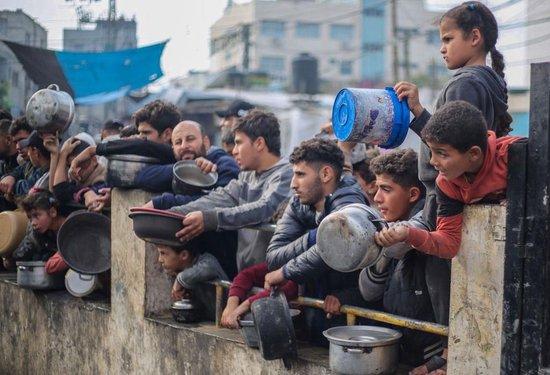
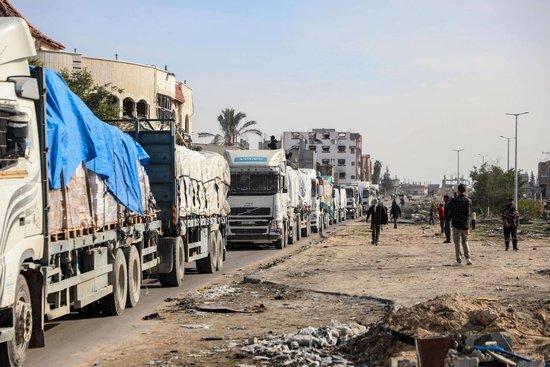
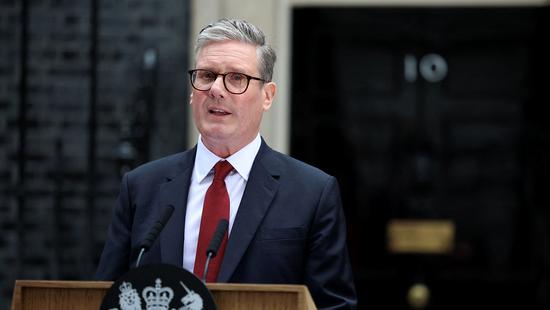
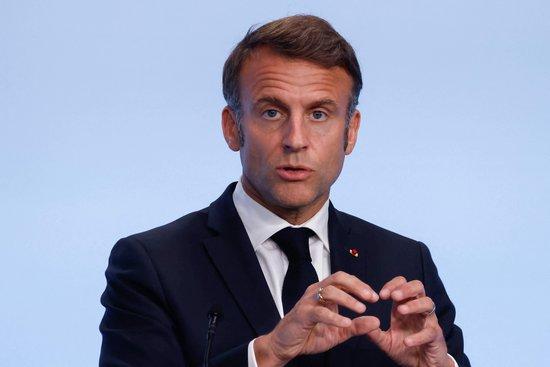
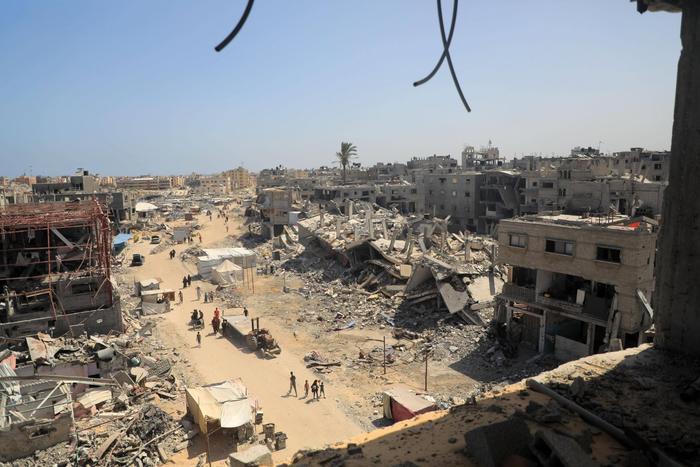
Since the start of this month, Israel and Hamas have engaged in a new round of indirect negotiations on the ceasefire in Gaza. On both 24th and 25th, Israeli and American representatives stated that Hamas lacked sincerity, leading to the recall of participants involved in the negotiations from Doha. The negotiations appeared to be at risk of breaking down.
On the other hand, Egypt and Qatar, as mediators, indicated on the 25th that progress had been made in the negotiations. They suggested suspending the talks and recalling the negotiation team for consultations before resuming them, stating that it was normal to do so. The negotiations are expected to continue on the 28th.
For a comprehensive understanding of the latest developments and statements from all parties, please see below:
Mediators: Ceasefire Negotiations in Gaza Have Not Broken Down
On the 25th local time, an Egyptian official mentioned that although the Israeli negotiation team and the US-mediating representative had left Doha on the 24th, a senior US official explicitly informed Egypt and Qatar that their representatives would return to Doha on the evening of the 27th.
The negotiations are set to resume on the 28th.
The official also stated that Egypt and Qatar had informed the Hamas negotiation team about this news.
Qatar’s Ministry of Foreign Affairs also issued a statement on the same day, indicating that Qatar and Egypt will continue to mediate and resolve the conflict in the Gaza Strip. The statement also mentioned that the three-week round of new ceasefire negotiations in Gaza had achieved some progress amidst complex negotiations. It is very normal for relevant parties to suspend negotiations and recall the negotiation team for consultations before resuming them. The statement urged the public not to be misled, to avoid disrupting diplomatic efforts and affecting the progress of the negotiations.
Hamas: Ready to Complete the Ceasefire Negotiations
A senior Hamas official, Tahir Nuh, stated on the 25th that Hamas holds an absolute positive attitude towards the efforts of the mediating parties but expressed surprise at the US statement.
Nunu stated that
the negotiations have progressed smoothly, with all parties reaching a significant consensus on the ceasefire and Israeli withdrawal plan. The United States’ statement was baseless, especially given the progress made in the negotiations, which came as a surprise.
Hamas is ready to complete the negotiations and takes seriousness in achieving an agreement to end the conflict in Gaza. Originally scheduled for discussion next week, regarding the exchange of prisoners between Israel and Palestine, Hamas was not informed of any issues with the documents throughout the negotiations.
Israel’s recent negative statements are attempts to evade the outcome of the negotiations.
Israel: Seeking “Alternative Solutions”
Following Hamas’s response to the proposal, Prime Minister Netanyahu convened a small government meeting on the 25th to discuss with senior Israeli security officials the so-called “alternative solutions” for Gaza, aimed at pressuring Hamas and achieving Israel’s military objectives.
The Israeli military has submitted a so-called “encirclement and division” plan for Gaza to the government.
Israel’s Foreign Minister Salah said that Israel agreed to the proposals for the release of detainees and the ceasefire in Gaza, but Hamas still refuses to compromise.
According to Israeli sources, the actual differences between Israel and Hamas regarding the negotiations for Gaza ceasefire and prisoner exchange are not significant, and there is still a possibility of reaching an agreement.
On the issue of recognizing the Palestinian state, leaders from the UK, France, and Germany issued a joint statement on the 25th, calling for immediate ceasefire in Gaza and unconditional release of detainees, demanding that Israel immediately lifts its obstructions to humanitarian aid. The leaders expressed their intention to work with international partners to promote lasting peace between Israel and Palestine. Additionally, they also made statements on the recognition of the Palestinian state.
France: Expected to Recognize the Palestinian State in September
On September 24th, French President Emmanuel Macron announced that France would formally recognize the Palestinian state. He plans to officially make this decision during the United Nations General Assembly session this September.
Macron emphasized the necessity of an immediate halt to the conflict in Gaza and the release of all hostages, as well as the rapid delivery of humanitarian aid.
In a letter to President Abbas, Macron also publicly disclosed a formal letter to the Palestinian President Mahmoud Abbas, emphasizing France’s support for the “two-state solution” and affirming Abbas’ commitments in promoting a ceasefire.
Macron further stated in the letter that France and Saudi Arabia will convene a high-level meeting at the United Nations next week to implement the “two-state solution,” aiming to promote a peaceful resolution to the Palestinian issue.
United Kingdom: Recognition of the Palestinian State is One Step in Gaza Ceasefire
On September 25th, British Prime Minister Boris Johnson issued a statement on the situation in Gaza, condemning Israel’s military escalation and obstruction of humanitarian aid. Johnson expressed his desire to push forward the peace process and urgently called for a ceasefire, stating, “Recognition of the Palestinian state is one step.”
It is understood that approximately 220 members of Parliament have signed a letter to Prime Minister Johnson, calling for the recognition of the Palestinian state, surpassing one-third of the total number of MPs.
British media believe that following French President Emmanuel Macron’s announcement on September 24th that France would formally recognize the Palestinian state, various parties in Britain are continuing to pressure Prime Minister Johnson.
Germany: Not Planning to Recognize the Palestinian State in the Short Term
On the same day, German government spokesperson Stefan Knillowski made a written statement on the Israeli-Palestinian issue, stating that the German government does not plan to recognize the Palestinian state in the short term.
The statement declared that the German government firmly believes that
only through negotiations can the “two-state solution” bring lasting peace and security to Israel and Palestine.
The German government has always regarded the recognition of the Palestinian state as one of the final steps towards the “two-state solution.” At the same time, the security of Israel is crucial to the German government. Therefore, the German government does not intend to recognize the Palestinian state in the short term.
The humanitarian crisis in Gaza continues to worsen.
Thousands of relief supplies have been destroyed by the Israeli army due to prolonged stasis and spoilage.
According to sources from the Israeli military on the 25th,
the Israeli army recently destroyed thousands of humanitarian aid supplies that had spoiled due to prolonged stasis at the Gaza border. These supplies included a large amount of food intended for Gaza residents.
It is reported that these quantities, totaling over a thousand trucks, included food, medical supplies, and bottled water, which had deteriorated after being exposed to the sun for several weeks at the Kerem Shalom port on the Gaza side. Sources from the Israeli military stated that the main reason for the destruction was the severe issues with the current aid distribution system in Gaza. Currently, thousands of parcels are still waiting to be transported under the scorching sun, facing the same fate if they cannot enter the Gaza Strip.
Israeli attacks on people receiving aid
On the same evening, in the northern Qiyim area of the Gaza Strip, the Israeli army attacked Gazans attempting to receive aid, resulting in more than ten deaths and over a hundred injuries.
122 people have died from famine
Furthermore, the health department of the Gaza Strip stated on the same day that since early March this year, the number of deaths caused by famine has risen to 122, including 83 children.
Currently, hospitals in the Gaza Strip continue to receive cases of famine continuously. In the entire Gaza Strip, there are 900,000 children facing a food crisis, among whom 70,000 have shown symptoms of malnutrition. The United Nations Relief and Works Agency for Palestine Refugees in the Near East previously warned that during the period from March to June, the rate of malnutrition among children under five years old in the locality surged by 100%.